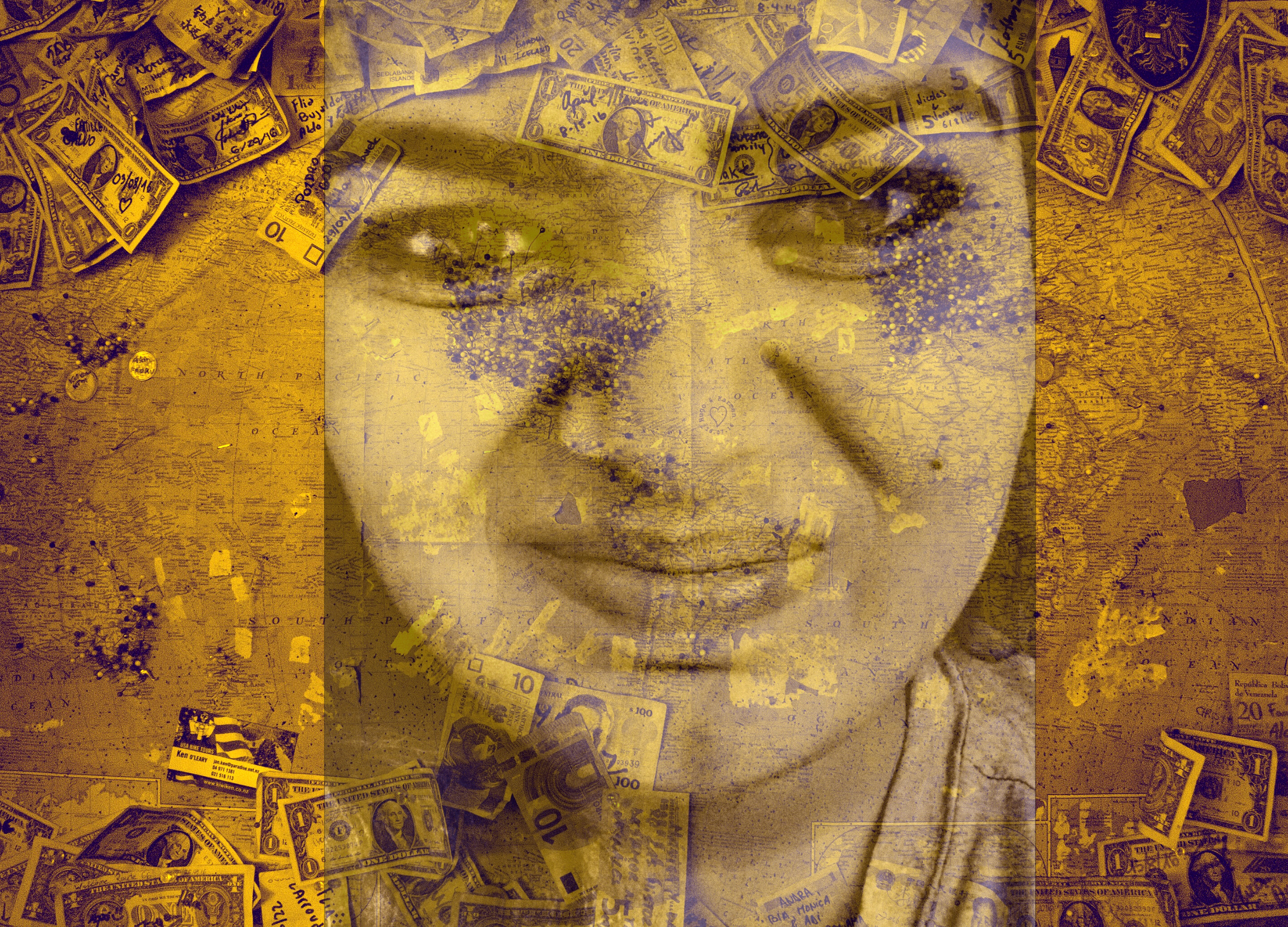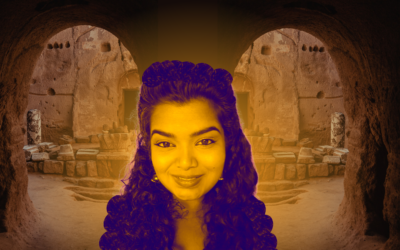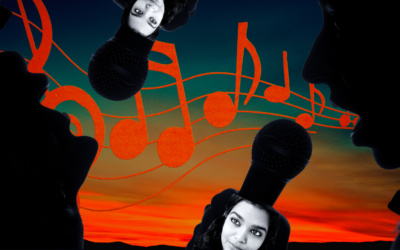I tend to travel to rural areas, villages and tiny islands.
Understanding how life is lived differently by those outside of capitalistic cities inspires me.
I found an unlikely money teacher in an 11-year-old child in Cambodia.
This is her story.
1. Fiji’s eyes grow wide. Her mouth is agape. ‘This is…for me?’
She’s looking at the USD 100 note.
I smile as I watch Fiji run off to show her parents.
Today is Fiji’s 11th birthday. I should know. For the last 30 days, I’ve listened to Fiji counting down to this day. 20 more days… 10 more days … 5 more days until…
As I’m living with Fiji and her family in the rural town of Kep, Cambodia – there aren’t many birthday gift shopping options.I decide on cash. I want Fiji to get the perfect gift – maybe something she’s seen online? Through YouTube, Fiji has access to the world. She watches videos of how to get ‘Kylie Jenner lips’.
Today, her parents are taking her to the neighbouring town of Kampot where she will pick out her gift.
“Aaaay-vaa! Thank you! Thank you! Thank you!’
Fiji comes bounding back to me, still waving the hundred dollar note in her hand. What is she going to buy?
“I’m going to buy new shoes from the thrift shop. Papa says I get to spend the rest of this money on my school tuition. Will you braid my hair for Kampot?”
Fiji makes her way to my hard bed; her little face reflected in the sliver of a mirror mounted on the wall.
As I stand over her braiding her silky brown hair – I am in awe. I’m marveling at the nonchalance with which she just told me she is using the bulk of her birthday money to pay her school fees. I can’t seem to get the words out of my mind.
“I get to pay for my school fees…”
“Get to…’
2. I’m sitting cross-legged on a beach in Gili Trawangan, Indonesia.
I’m co-facilitating a session of Authentic Relating with a group of Indonesian school teachers.
To my left, one of the teachers is tearing up. She’s remembering her grandmother.
‘I just wish, I just wish to take care of her. It’s why I am working.”
In my head, I’m imagining she wants to buy her grandmother a house, a plot of land or maybe she wants to pay for medical treatment. When I ask her what it is that she wants to buy her?
Wiping away her tears, she doesn’t quite make eye contact with me.
‘Pots, pans and utensils. Things for her kitchen.’
3. It’s Christmas time. I’m in a gym in the USA walking on a treadmill that has an inbuilt TV.
I’m happily watching a cheesy Christmas Hallmark movie when it is interrupted by this ad:
A woman presents her husband two wrist watches. In a sing-song voice, she says: “One for You! One for Me!”
In response, he takes her out into the front yard of their massive house. We see two massive SUVs parked in the drive.
In the same sing-song voice he responds: “One for You. One for Me”
***
4. I’m sitting around a campfire on a glittering white beach off the magnificent Sun Kosi river in Nepal.
Around me are fellow travelers and our Nepalese guides. Over the last nine days, we have rafted down this massive river journeying through exhilarating white water rapids and stunning landscapes. We’ve reached the end of our adventure.
Tonight, we are celebrating.
Out of nowhere, one of our group stands up to raise a toast to our Nepalese guides. The man, an older British national, raises his can of Everest beer to the sky.
“A toast to all of you. You, who have nothing. Nothing. But… you have everything. It makes me so grateful for my life in the UK. How much we have. Cheers.”
He drunkenly stumbles back to the ground and I winced – not exactly sure why.
The next day, I stifled a groan, when I heard the same British man grumble about the Nepalese infrastructure complaining about our upcoming trip through Nepal’s domestic airports.
“We’re going from one shithole to another,’ he mumbled.
And just then, I realised how unchanged he was from all he had witnessed. He saw the lack of financial resources and his conclusion was – this is a shithole. They have nothing. I’m so glad to be going home tonight to enjoy my hot running water and luxuries.
This is NOT what I’m advocating.
***
I’ve struggled to write this essay. A lot.
When I first wrote this essay, the overtones were reminiscent of that British man – ‘they have nothing, but they have everything.’ Poverty porn has several definitions including – ‘objectifying the poor for the entertainment of the privileged.’
This essay isn’t about entertainment, feeling good about ourselves or sorry for those who go without. This is about fundamentally changing our consumption and aspirational habits. Truly learning the inherent wisdom alive in other cultures who make do with far less, with far more gratitude and satiation.
There is inherent wisdom within those who have found a sense of enoughness. A distinctly appropriate relationship to materials and resources – that we in consumerist societies have forgotten.
No resentment from an 11-year-old.
It wasn’t surprising to me that Fiji was using the bulk of her cash on her school fees – it was a financially tough time for the family. What was surprising was the energy with which she decided to do it. She wasn’t upset. At all. She’s an incredible feisty and spirited girl – part of why we got along really well.
At that moment she was outright jubilant. She wasn’t unhappy with the fact she was paying for school fees. Why? I think part of it is because of how people with limited financial resources understand their individual financial ambitions within the larger communal aspirations – just like Dewa buying pots and pans for her grandmother.
Toxic materialism is deeply problematic.
The perpetual state of never enoughness: The more people have, the more they want, the more unhappy they are.
In hyper-capitalistic, consumerist cities the money is never ever enough. Their financial goals seem to be insatiable. I grew up in Dubai, a hyper-capitalistic city which has a month-long festival dedicated to shopping (I wish I was kidding).
More, more, more. More clothes, more plastic surgery, more luxury watches, more fancy meals, more experiences…more debt.
The energy of ‘more, more, more’ informs career choices, financial investments, relationships and family planning. It depletes us of gratitude, satiation and generosity. It keeps us divided, selfish and deeply unhappy.
What if my possessions were not conflated equal to my ego, accomplishments, status, taste?
Something I’ve noticed in communities with less financial resources – is there isn’t as serious a sense of brand consciousness and individualism. Money is viewed differently – quite simply as a resource. It is a resource to buy things WE all need. There is simplicity to the relationship to the cash. We need money to buy pots, pans, school fees and a birthday cake.
In the moment I was with these different people, I felt something vastly different in the energy towards money. There was a limit. There was satiation. They were going to use the money to buy something they needed. There wasn’t the piggy-greed in their eyes of ‘more, more, more.’
What do I really need? When do I have enough?
How much of life could be simplified if everyone honestly answered the question: What do I really need?
Minimalism is a beautiful philosophy for many reasons.
One of them is because of its spiritual implications. If I leave you with anything – it is this:
How do we access the feeling within our hearts and minds, that what we have is enough? That what we are is enough? How do we skip along like Fiji, oblivious and at the same time hyper aware of the limitations and need for money?
I do not wish to glamourize or romanticise poverty.
Access to financial resources is a genuine baseline need. The cumulative consequences of limited financial means can be soul-crushing and life-destroying.
There is much to say about the financial inequalities, the systems of governance and our communal complicity. This isn’t the space for that commentary.
Money is a loaded term. It is complex.
What should just be a symbol for an exchange of energy turns into layers upon layers of value systems, oppression and political ideologies.
For me, the gift of moving from a community with significantly less financial resources to one with a lot – is the gift of comparison and insight. When I’m with the Fijis and the Dewas of the world – I begin to challenge myself. They get me to ask the question: how much is enough. I see just how differently they view status and brand free consciousness. It feels pure.
The question of how much is enough – is a tough one. The answer keeps shifting as our life circumstances shift too.
When I didn’t have access to money, going to a psychologist seemed like a luxury. It even seemed like a waste of money. However, now that I have had the privilege of years of coaching and therapy – I think access to a therapist is more of a necessity than a luxury.
Too often, when thinking about money – I get stuck. Stuck in this binary of hyper-consumerism equal bad; romanticisation of borderline poverty = good.
The truth perhaps lies somewhere in between.
Being with people who have significantly less financial resources than you is really important. It brings you back to the reality of what is important. It helps you understand how to get more out of less.
Being with people who have significantly more financial resources than you is also really important too. It brings into your consciousness all of the things which you didn’t even know were possible.
What I want to leave you with, is to forever be engaged in an intentional conversation with your understanding of money. Forever be questioning when is enough, really enough? When do you need more? When is society’s hyper-capitalistic and brand consciousness getting to you? When is my ego getting conflated with my basic needs?




